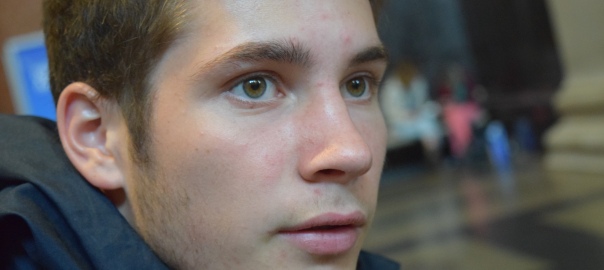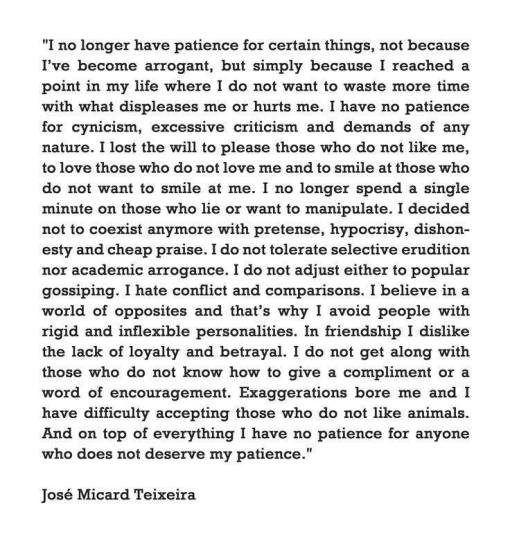About a week ago I ran into this article online. The title of the article caught my attention quickly because it’s a stance I’ve taken on borderline personality disorder (BPD) years before even getting my psychology degree.
That title?
We need to treat borderline personality disorder for what it really is – a response to trauma
You see, a therapist tried to diagnose me with BPD in my 20’s. As an avid learner who looks into everything with child like curiosity and the vigor of a research scientist, I dug into this subject until I felt I knew at least 4 different perspectives and read at least that many “definitions” of the disorder, including the DSM-4. After all my research and digging, I came to the conclusion that BPD is simply the result of a traumatic childhood and bad parenting. But this isn’t the reason I rejected that diagnosis. I rejected it because there’s a certain trait that all patients with BPD have, and I don’t have it.
What’s that trait?
It’s hard to put into words, honestly. I can pick up on it in a person with great ease, but to verbalize it requires that I understand your perception of the words I choose. As an autistic, I’ve always found that difficult to do. I prefer the dictionary definition of words and most people attach a lot of emotions and personal meanings to words. This makes it very difficult to communicate my understanding of things and how they work. So, I will leave you with the understanding that I am being very technical in my word choice and to please refrain from emoting on my description:
The trait that defines BPD for me is that they are spastic in temperment, impulsive in speech, and draining in interaction. All of these traits must blend together into one trait that I cannot seem to describe any better than breaking it down into its parts.
For this reason, I cannot identify with BPD, so I have refused the diagnosis each time it’s brought up. Yes, I have compulsive behaviors… I’m autistic. Yes, I am socially awkward… I’m autistic. Yes, I can be draining in interaction… believe me, I’m only draining because I’m drained. This is the point where it’s best to just let me go home. Thanks. I’m also inappropriately loud at times… again, I’m autistic. The difference is, I’m not frantic; I’m not craving approval so much that it’s disordered. And yes, I love approval. Most people do. But in order to fit in with the BPD definition, you have to be disordered in your need for approval.
So, when I read this article, I immediately said “YES!” and simultaneously, “in your face [insert teacher name here]!” You see, as I mentioned, I’ve been saying this for years. I’ve even been arguing with psych teachers about this. Their argument is always based on the DSM and the idea that a disorder cannot be learned. These same teachers don’t even understand the baseline difference between a sociopath and a psychopath. And no, it’s not intelligence and impulse control. Psychopaths are born, sociopaths are made. It’s that simple. You can have an intelligent sociopath, though they’re rare. You can have a psychopath with poor impulse control, even more rare. But the main difference is the neurological connections in the brain. Psychopaths are born with the way they interpret the world. Sociopaths require consistent marked trauma and an early onset of survival instincts. Survival instincts play a big part of BPD too. Let’s get back to that.
From the article…
The Diagnostic and Statistical Manual of Mental Disorders (DSM-V) does not mention trauma as a diagnostic factor in BPD, despite the inextricable link between BPD and trauma. This adds to viewing BPD as what its name suggests it is – a personality disorder.
This needs to change. The fact that these children were abused–and are later showing signs of that abuse–isn’t being considered because they’re no longer children. They’re adults… so they should suck it up… or some such shit as that. The thing that constantly gets ignored is the fact that every one of these people with BPD have had abusive and neglectful caretakers (they’re not always parents). They need to acknowledge the trauma.
Now the article goes on to explain the difference between Complex Post Traumatic Stress Disorder (C-PTSD) and BPD. If you understand both, you can understand why so many therapists tried to diagnose me with BPD. I have C-PTSD. I will not deny that. Is it an easier disorder to deal with? Meh. Is it different than BPD? Slightly. See, my issue wasn’t with the stigma attached to BPD. My issue was with the frantic, spastic personality trait that’s like a beacon for people with BPD. I am more calm, less clingy and I definitely am more self aware than a person with BPD. Those being the main differences between the two. Compound my C-PTSD with autism of the high functioning flavor and you have a cocktail that an inexperienced psychologist or therapist would mistaken for BPD.
For this reason, I agree with the summation that BPD needs a name change. Especially considering it’s just C-PTSD with a little extra flavor, maybe call it C-PTSD 2. Or C-PTSD the sequel. Or C-PTSD with extra flavor crystals. Whatever the name they choose, it should be voted on by sufferers of the condition. People with BPD should have a say in the renaming just like autistics should always have a say in their care.
Honestly, there’s such an overlap between C-PTSD, BPD and autism that we should just start calling them all the same thing. Let’s see… Social Neurodivergent-genetic (aka autism), Social Neurodivergent-learned (C-PTSD), and Social Neurodivergent-warrior (BPD). There, that should fix it. And everyone gets their diginities back.


You must be logged in to post a comment.